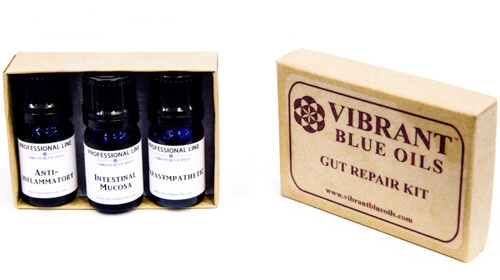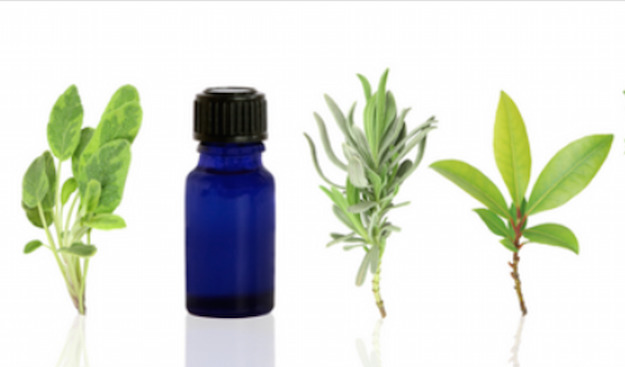In this article I list some of the best essential oils for stress. I know so many of you need all the help you can get to reduce stress levels!
For most of my life, I was a Type A+ personality. I threw myself into my school work and secured great grades, acceptance at Ivy League Universities, and job offers from top companies with salaries to match.
My over-achieving nature didn’t end there. I matched it with extra-curricular over-commitments in my personal life – running marathons, joining boards, and maintaining an around the clock social calendar. Every time I achieved a goal, I set the bar even higher.
You see, I equated achievement with love, so I shifted into hyper-achievement drive early in life and just got stuck there.
Does any of this sound familiar to you?
Hard driving, focused, no problem you can’t solve type of personality? Perhaps you know someone like this? Perhaps you recognize a bit of it in yourself?
I thought I was invincible.
And I was for a while. Until it all caught up with me.
Hitting Rock Bottom
 My wake-up call came suddenly, without warning. A situation in my life shifted and suddenly my bottom fell out from under me.
My wake-up call came suddenly, without warning. A situation in my life shifted and suddenly my bottom fell out from under me.
It was as if the wind had completely been drained from my sails.
I could barely get out of bed to make my kids breakfast, pack them lunch or drive them to school. The minute I had dropped them off, all I wanted to do was crawl back into my sweatpants, a big t-shirt, and binge-watch the Kardashians or some other mindless television.
Answering the phone felt like too much. Trying to get out the door to exercise? Not going to happen. The dishes, could sit. The laundry, forget it. Trying to get any work done suddenly seemed impossible. Even taking a shower required energy I wasn’t sure I could expend.
I had never felt so exhausted or defeated.
This was not the person I was used to being. What happened to me? How did I go from invincible to exhausted?
What happened?
It turns out that years of chronic and prolonged stress can really deplete the body. You see, the body and its stress response are designed to be short and acute, like the experience of running from a predator.
The first line of defense against stress is triggered by the nervous system and is known as the sympathetic “fight or flight” response.
The body kicks into survival mode. Hormones like adrenaline are released making our heart beat faster, our blood pressure and respiratory rates increase to transport nutrients and oxygen to the cells faster, our pupils dilate so we can see more clearly and our blood pumps to external muscles (and away from internal organs of digestion) so we can flee faster.
We are designed to switch into this sympathetic state, flee from danger, then drop back into balance, often called homeostasis. It is in the balanced parasympathetic “rest and digest” state where we can rest, repair and heal.
It is only in this parasympathetic state that the body can properly digest food, detoxify, reproduce, and heal. It makes sense, right? If the lion is chasing you, all functions that are not essential to your immediate survival shut down, including your immune system and your inflammatory response.
The problem is that stress often isn’t acute and short term, it’s chronic and prolonged
When stress is more chronic and prolonged, two things happen:
- We can stay locked into the Sympathetic nervous system “fight and flight” response. A state termed Sympathetic Dominance.
- The brain triggers other systems, glands and hormones to respond to the stress, including the Hypothalamus, Pituitary and Adrenal glands (known as the HPA Axis).
Neither of these reactions are good for our long term health. For one thing, the hormones released during the stress response are damaging to the body. For another, hormones like cortisol down regulate inflammation and the immune system. Turning off the immune system and delaying the body’s natural inflammatory response for prolonged periods of time can lead to health challenges like auto immunity and cancer.
What triggers a stress response?
 A stressor is defined as anything in the outside world that can knocks us out of homeostatic balance. Stressors can be physical, emotional or physiological and can include everything from work, monetary or relationship stress to lifestyle habits or stress-provoking emotions like fear, anger, grief, or worry.
A stressor is defined as anything in the outside world that can knocks us out of homeostatic balance. Stressors can be physical, emotional or physiological and can include everything from work, monetary or relationship stress to lifestyle habits or stress-provoking emotions like fear, anger, grief, or worry.
It is important to understand that the body cannot differentiate between actual physical stress and emotional or anticipatory stress, like thinking about a potential stressor that could occur in some imaginary future.
The book, Zebras Don’t Get Ulcers, talks about this phenomena, noting that, “sometimes we are smart enough to see things coming and, based only on anticipation, can turn on a stress-response as robust as if the event had actually occurred.”
Thus, the stress-response can be mobilized not only in response to physical or psychological insults, but also in expectation of them —a physiological system activated not only by all sorts of physical disasters but by just thinking about them as well. But when we get into a physiological uproar and activate the stress-response for no reason at all, or over something we cannot do anything about, we call it things like “anxiety,” “neurosis,” “paranoia,” or “needless hostility.”
Impact of being stuck in high gear all the time
While some use of this fight-or-flight system is normal and needed, when it is overused chronically, it becomes exhausted. Just think what life would be like if we didn’t have that pause between intense effort. For example, if you finished a 100 yard sprint and didn’t have time to catch your breath before taking off again for another race. It could lead to a lot of delayed maintenance.
Even race cars need to make pit stops along the way to prevent their tires from blowing out. But so many of us forget to make those pit stops, those small pauses to allow our bodies to rest and repair.
When we drive ourselves 24/7, we burn through our stress reserves, which can result in both adrenal fatigue and sympathetic dominance.
What is Sympathetic Dominance?
 Sympathetic dominance is a term coined by Dr. Lawrence Wilson that indicates a pattern of over-utilizing the sympathetic nervous system either by pushing too hard or worrying too much without time to reset and return to homeostasis.
Sympathetic dominance is a term coined by Dr. Lawrence Wilson that indicates a pattern of over-utilizing the sympathetic nervous system either by pushing too hard or worrying too much without time to reset and return to homeostasis.
Sympathetic dominance often occurs when there is not enough downtime for recovery between stress responses.
Sympathetic dominant individuals are generally smart and have a very active mind to begin with, which gets overactive easily. They may have had an upbringing that taught not be lazy, to be productive, to not waste time, that can develop into a compulsive or obsessive quality or may experience emotions of fear, anger, worry or other negative feelings that drive many to achieve highly or just to keep moving all the time.
This can make relaxing, sleeping or just sitting even more difficult. The reason for this is that the body is often in a “second wind” mode of living much of the time.
Symptoms of the Sympathetic Dominant Personality Type

- Lots physical activity –often run around too much physically
- Forever busy
- Difficulty relaxing, sitting still, resting, and being idle
- Highly driven and compelled
- Somewhat obsessive or compulsive
- Often stressed as if being “chased by tigers”
- Believe that to relax is a “waste of time” or “unproductive” or “lazy”.
- Identify selves as a “doer” with lots of physical or mental activities
- Struggle to be happy without needing to run around or do much of anything
- Anxious or worriers. This is a form of “running around aimlessly” in the mind
- Tired, but usually somewhat out of touch with the fatigue and exhaustion.
- Might only feel tired when you slow down. If you relax, you feel like going to sleep.
- A very active or analytical mind.
- Willful, often willing themselves to think and do too much
- Fearful and always somewhat depressed underneath due to fears, worries and fatigue. Constant business allows them to avoid feeling these unpleasant emotions.
- Desire to “move on”, but unsure how to do this
- Somewhat lonely but try to ‘fit in with the crowd’
- Overwork, overachieve, and generally run themselves ragged.
- Try to please others and exhaust self in the process
- Ungrounded and not centered enough. This goes with the tendency to run around too much or worry too much.
 Essential Oils to Balance Stress
Essential Oils to Balance Stress
Parasympathetic
If we are stuck in the Sympathetic Dominant state, we are never able to rest, digest and heal. To help stimulate the Parasympathetic response, apply Vibrant Blue Oils Parasympathetic blend to the vagal nerve (behind the earlobe on the mastoid bone).
For more aggressive vagal stimulation, you can also apply at the base of the skull (where you feel a small indent). Apply before meals to optimize digestion and up to 6 times daily to help reset the body into the Parasympathetic state.
Adrenal
The adrenal glands help determine and regulate the body’s stress response by secreting hormones like adrenaline and cortisol. Prolonged periods of stress can deplete our reserves of these hormones and exhaust the adrenal glands.
Applying Vibrant Blue Oils Adrenal blend over the adrenal glands (back of the body, one fist up from the 12th rib), may help to increase the body’s ability to adapt to stress and maintain healthy adrenal function. 
Hypothalamus
The hypothalamus is pearl size region of the brain that serves as control center for neural and hormonal messages received from/sent to body. It is constantly reading blood the levels of cortisol, and adjusting signals sent to the adrenal glands for optimal internal balance (homeostasis) of the body.
Chronic and prolonged stress can damage the hypothalamus’s ability to receive clear messages from the body which then impacts all outgoing endocrine and neural signals.
Applying Vibrant Blue Oils Hypothalamus blend over the third eye may help reset the natural ability of the hypothalamus to send and receive clear messages to and from the body.
Kidney Support
This helps with fear. The sympathetic nervous system is the fight-or-flight system. It is the body’s response to fear. Anything that creates fear, whether it be listening to the news, watching a scary movie or any other frightening situation can contribute to sympathetic dominance symptoms.
In Chinese medicine, feelings of fear and paranoia can be held in the kidneys impairing function. Applying Vibrant Blue Oils Kidney Support over the kidneys (one inch up and out from belly button), back of neck, or around the outside of earlobes can help us flow through fear.
 Liver Support
Liver Support
This is ideal for anger. Many people with sympathetic dominance are quite angry underneath. This is partially because they are spiritually advanced people who are having trouble handling the world.
It can also be for all sorts of other reasons, such as childhood traumas. For many in sympathetic dominance pattern, anger often presents an adrenal response to fear that is projected onto others.
Vibrant Blue Liver Support helps supports the release of emotions, including frequent irritation, impatience, resentment or frustration, being critical of yourself or others, control issues, an inability to express your feelings, feelings of not feeling heard, not feeling loved, not being recognized or appreciated.










